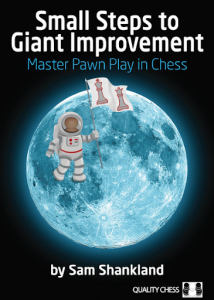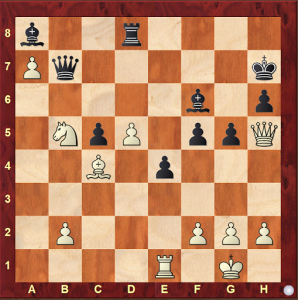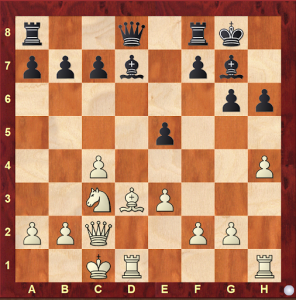Blogs
Book Review: "Small Steps to Giant Improvement: Master Pawn Play in Chess" by Sam Shankland
By:
Mithil Anande
July 10, 2023
If take backs were allowed in competitive chess, it would not only be funny but would have created an endless repertoire of hilarious moments; it would have also prevented many moments from chess history from happening, like Bobby Fischer not blundering his bishop to Wesly, thus succeeding to castle through a check!
If you move your pieces to a bad square, you can always reposition them at the expense of time and tempo; unlike a piece, pawns once pushed can’t go back. Pawn positions have decided the outcome of chess games for zillions of years now.
Lucena Position, where one side is up a pawn, has been studied by Philidor as far back as the 17th century. And he’s the same person who said “pawns are the soul of chess.”
Cut to 2018, we have Grandmaster Samuel ‘Sam’ Shankland from USA studying and analysing the pawn positions that are relevant to the New Dynamism Era and beyond.

Sam is the author of many chess books; among them my favourite is “Small Steps to Giant Improvement”. I have fond memories of reading this book during the pandemic and one regret I have is I did not carry this book to the Chess Olympiad held in Chennai in August 2022, where I could have got it autographed by Sam himself!

My rendezvous with Sam Shakland at Chess Olympiad, Chennai 2022
Mastering pawn play is a challenging aspect of chess strategy, but Grandmaster Sam Shankland simplifies it in book by providing clear and easily understandable guidelines that every chess player should be familiar with. Beginning with straightforward examples, he gradually elevates the level of complexity, demonstrating how even grandmasters could have improved their decisions by following the principles outlined in his book.
Who should read this?
This book is completely focused on pawn play and its impact over the board. I feel someone who is above the rating of 1200 can understand most of the concepts. Hook, holes, majority/minority and many other uncommon concepts are included that are easy to understand and important to learn.
What do I like about this book?
I think this is the first book I came across which is completely focused on pawn play, a piece which has the least points on the board but makes so much of a difference. This book clearly demonstrated how pawn play can have a huge impact on the game, especially how weaknesses are created and how to exploit and avoid them.
I really loved the games which the author has chosen as examples.
Have you ever seen a meme in a chess book? Well if you haven’t, then you can have a look at the image below:

Chapter 8: Blocking artillery
A few interesting positions from the book:
1. Garry Kasparov VS Boris Spassky (Tilburg 1981)

Kasparov played g4. Do you think it is a good move?
2. Yannick Gozzoli VS Romania Edouard (2017)

What would you play as white to attack the black king?
Why should you read this book?
The permanent and irreversible moving style of pawns adds to the complexity of chess strategy, which is why there are few books dedicated to this topic and some of them can be quite difficult to comprehend. But Sam makes it interesting and easy to understand. I would recommend that every aspiring chess player must read this book to improve their middle game strategy and understand pawn breaks.
Highlights:
- Easy to read and understand
- Amazing choice of games
- A good book for above 1200 rated players
- Bonus: A book that contains a chess meme!
Pricing:
The book is priced at Rs. 2,366/- on Amazon. You can also check Chessbase India app for a better price.
About the Author:

Sam Shankland is an American Chess Grandmaster. His peak rating is 2731.
He is amongst the top 30 Chess players in the world and a double Olympiad winner. He has Chessable courses for d4, and has authored three books:
- Small Steps to Giant Improvement. Master Pawn Play in Chess (2018)
- Small Steps 2 Success : Mastering Passed Pawn Play by Sam (2019)
- Calculation!: Grandmaster Training Camp 1 (2023)
Sam lives in California, United States.
